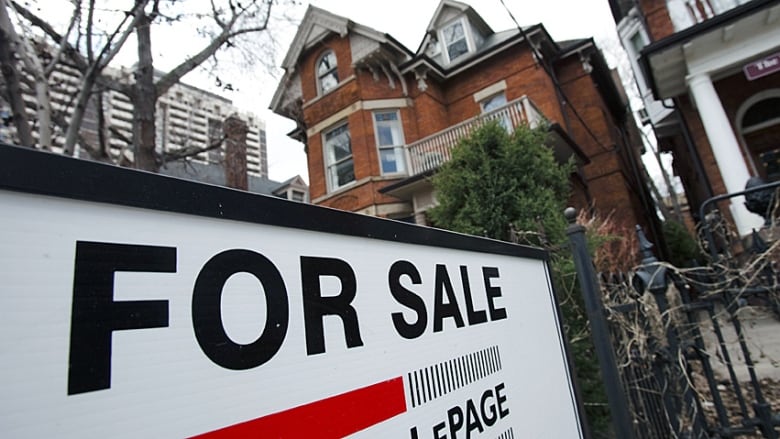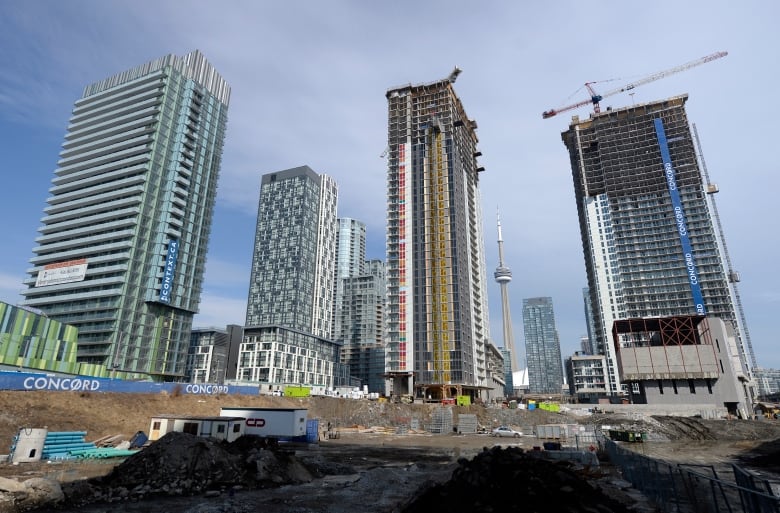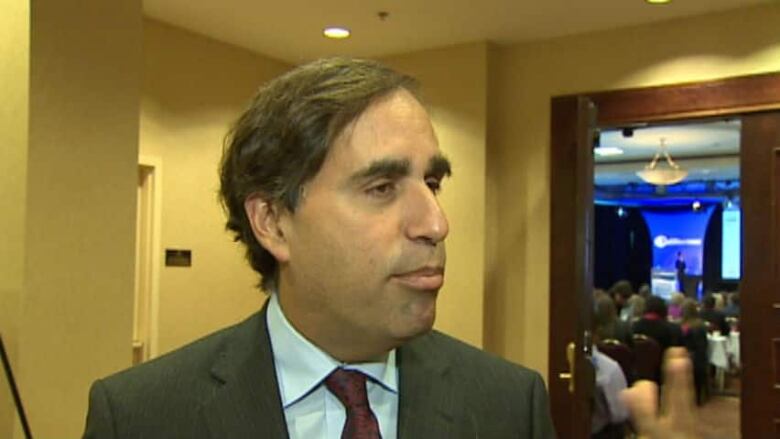Economist calls for ways to bring 'gentle end' to house price inflation in Toronto
CIBC economist says cooling off the market doesn't need to result in economic disaster

Toronto needs to seek a"gentle end" to the current surge in house prices that would not damagethe provincial economy, says the chief economist for CIBC Capital Markets.
-
How a 30-something couple got rich and retired by not joining home ownership 'cult'
-
'Troubling trend' as Toronto real estate market sees record sales for July
"When house prices boomed and then went bust in the U.S., it was a disaster for the U.S. economy," Avery Shenfeld told Metro Morning on Monday.
"But there are ways that policy-makers could induce a cooling off,at least in the inflation rate of houses of Toronto, without killing the Ontario or Toronto economies in the process," said Shenfeld."It's really all about the way we try to cool prices."

Shenfeld said the focus needs to be on the supply, not the demand, side of the housing market. Raising interest rates and making it more difficult for consumers to obtain mortgages would "tame" house prices but also "tame" the larger economy, he said. Those measures would reduce home sales and home-building.
What is needed, he said, is a concerted attempt by governments to create a larger supply of new houses andcondos on the market.
"Then you are actually killing two birds with one stone. You are putting downward pressure on house price inflation but you are creating the economic activity associated with the construction and sale of those additional houses."
In a research paper released last week, "This Needn't End Badly," Shenfeld argued that governments need to aim for the "right policy mix" to deal with regional house price inflation.
"Releasing more land for single family homebuilding, and speeding the approval process for new construction, would be part of that process," Shenfeld wrote.

Improving urban transit, so that land outside the city core is a closer substitute for the inner-city locations where prices are reaching the greatest heights, would do the same."
Canada's housing market doesn't need to end in a U.S.-style meltdown, he wrote, which would be disastrous for the rest of the economy.
"The memories of the U.S. financial crisis have left the impression that all house price booms end badly for the broader economy. With the right policy mix, it needn't be so."
Shenfeld said Torontois undergoing a "Manhattanization," where people do not expect to live in their own homes, with driveways and backyards, close to their places of work, but the city still needs better transit linking commuters to its suburbs and a change in attitudes that would make it more socially acceptable for people to raise families in high-rises.
House prices not 'economic win'
New York City has a more extensive commuter rail network that enables people to work downtown but live further out, it has a lot of high rise construction to substitute for single family houses and it has worked hard to ensure there is zoning for social housing, he said. "We need to take all of those approaches."
Rising house prices are not an "economic win" for a younger generation who have to save more to afford a downpayment and for employers who want their employees to be ableto live nearby, he said.
"We need the city to grow. Toronto is becoming an attractive place for people to move to and live, and we have to supply the adequate housing," he said.
Home prices in Toronto are rising by 3.1 per cent month over month, according to the National Bank's House Price Index, but Shenfeld said that rate is not sustainable.
"This sort of thing has to come to an end. And what we need is to seek a way that it comes to a gentle end, one that doesn't take down the economy in the process."












_(720p).jpg)


 OFFICIAL HD MUSIC VIDEO.jpg)
.jpg)



























































































